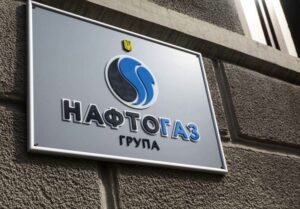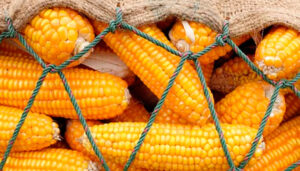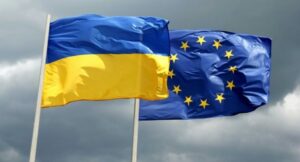
Serbia continues to attract both local and foreign investors due to its stable real estate market and attractive living conditions. In 2024, housing prices remain one of the most discussed topics due to high demand and limited supply, especially in the capital city of Belgrade.
Housing prices in Belgrade continue to rise. In popular central areas such as Vračar, the Old Town and New Belgrade, the cost per square meter ranges from 3,000 to 5,000 euros. In the less prestigious and more remote areas, prices range from 1,500 to 2,800 euros per square meter, making them more affordable for young families and those looking for budget options.
In Novi Sad and Nis, other major cities in Serbia, the cost of housing remains stable: a square meter costs an average of 1,400-1,800 euros, and in some suburbs prices can drop to 900-1,000 euros.
Serbia remains an attractive destination for citizens of many countries. Convenient location, a simplified process of obtaining a residence permit and an affordable cost of living – all this attracts new buyers to the real estate market. There is a shortage of housing in Belgrade, especially in prestigious areas. This stimulates the growth of prices for secondary housing and increases the cost of apartments under construction. Improved transport accessibility, construction of new schools and shopping centers make certain areas more popular, which also contributes to price growth.
Vera Egorova-Tolstaja, an expert at the Belgrade real estate agency Vidovstan, notes that in 2025 the real estate market in Serbia will continue to show growth, although the pace may slow down. According to her, the main forecasts include moderate price growth, an increase in new construction and continued high interest in Serbian real estate from foreign buyers. According to the expert, increased competition between construction companies will lead to more affordable options in the economy class segment.
For those planning to buy a home in 2025, it is important to consider the following recommendations. First, set a budget and take into account all additional costs: taxes, notary services, and agent commissions. Second, research the market and compare prices in different neighborhoods. Third, seek professional help: the services of realtors or legal advisors will help you avoid mistakes. Finally, consider new buildings, as buying a home under construction can be a profitable investment.
The real estate market in Serbia in 2025 is showing steady growth, remaining attractive to investors and new residents of the country. Despite rising prices, Serbia offers a variety of housing options suitable for different categories of buyers. If you are planning a relocation or investment, now is a good time to choose a property while the market is still in the process of forming new opportunities.
Source: https://news.relocation.rs/tseny-na-kvartiry-v-serbii-v-2025-godu-novye/

In 2024, Alliance Novobud (Brovary, Kyiv region) commissioned five houses in residential complexes in the capital and Brovary with a total living area of more than 61 thousand square meters.
“In 2024, we commissioned five houses in residential complexes in Brovary (Lavandovyi and Madison Garden) and Kyiv (Illinsky House clubhouse). Thus, we have built half a thousand apartments with a total area of more than 61 thousand square meters,” said Iryna Mikhaleva, CMO of Alliance Novobud, to Interfax-Ukraine.
She noted that two more complexes with an area of about 200 thousand square meters are under construction: Montreal House and Krona Park II. The developer plans to launch new projects and increase construction volumes next year.
“We are currently studying the prospects of several sites in Kyiv and the region,” said Mikhaleva.
According to her, this year the company managed to reach a more or less stable sales figure. In particular, sales under the eOselya program have increased: 80 deals have been concluded since its launch, including more than 40 in 2024.
The company named the main categories of buyers as military personnel who buy housing under the eOselya program or under alternative programs of the developer, displaced persons from other cities and traditional local buyers who improve their living conditions or buy real estate for relatives.
According to the expert, a typical buyer today is practical and rational. Important criteria for buying an apartment include the availability of shelters, underground parking lots, modern fire safety systems, and autonomous power supply systems.
In addition, some buyers prefer small apartments due to more affordable prices and maintenance.
Established in 2007, Alliance Novobud has commissioned more than 500 thousand square meters of housing: 36 houses and parking lots in the residential complexes Lesniy Kvartal, Zelenyi Kvartal, Krona Park, Madison Gardens in Brovary, as well as Illinsly House and Montreal House in Kyiv. More than 450 thousand square meters of housing are under construction, including one suburban project.

The consolidated profit of Naftogaz Group in January-September 2024 increased by one and a half times (by UAH 8.014 billion) compared to the same period last year – up to UAH 23.304 billion.
According to the consolidated financial statements published on Naftogaz’s website, its revenue for the first nine months increased by 20.3% (by UAH 33.577 billion) to UAH 199.195 billion, gross profit by 2.1 times (by UAH 33.862 billion) to UAH 65.104 billion, and operating profit by 28.4% (by UAH 7.17 billion) to UAH 32.375 billion.
“Naftogaz Group companies continue to operate smoothly despite all the current challenges. We ensure stable growth in hydrocarbon production and improve our financial performance. I am grateful to the entire team for these results,” said Roman Chumak, Acting CEO of the company.
Also, in January-September 2024, Naftogaz enterprises paid almost UAH 67 billion in taxes to the budget, the group supplies natural gas to almost 12.4 million households, continuing to supply gas at a fixed tariff under PSO.

Ukraine exported almost 1.7 million tons of corn as of December 23, and by the end of the month the total volume will exceed 2 million tons, despite problems with shipments at the beginning of the month that slowed down the pace of exports, according to the analytical cooperative “Start”, created within the framework of the All-Ukrainian Agrarian Council.
According to analysts on the UAC’s Facebook page on Thursday, corn prices are stable at $205-207 per ton on a CPT basis. They predict that corn has the potential to reach $210-215/ton in January. The key factor that may affect further price growth is weather conditions in Brazil and Argentina.
“The corn market is in a kind of “golden period”. In January, any importer who wants to receive supplies has to turn to Ukraine, as the US corn is already sold out. This creates conditions for sellers to dictate the price. However, it is important to remember that in February-March we may face competitive pressure on the European market due to cheaper U.S. corn,” the experts said.
They pointed out that Ukrainian corn remains the main player on the European market, while the US actively exports to Latin America and Mexico. However, the price difference between Ukrainian and American corn on the European market is about $10 in favor of American products.
According to forecasts, in January the market will be sensitive to news about the sowing campaign of the second harvest in Brazil and the condition of crops in Argentina, where there are already problems with moisture.
“Over the past 10 years, only twice the corn market has been stable in January and February without significant price fluctuations. Therefore, the probability of getting higher prices during this period is quite high. But in April-May, corn may become a scarce commodity, which will again create preconditions for price growth,” Pusk summarized.

In 2024, the Ministry of Agrarian Policy and Food provided UAH 39.4 million in state support to agricultural producers using reclaimed land, Minister of Agrarian Policy and Food Vitaliy Koval said in a telegram.
“To receive the budget subsidy, they submitted applications to the State Agrarian Register. After the Ministry of Agrarian Policy commission reviewed the applications, state support was granted to 10 agricultural enterprises in Cherkasy, Kyiv, Odesa, Poltava, Zhytomyr and Lviv regions for a total of UAH 39.4 million,” the minister wrote.
According to him, these funds were used to provide irrigation on an area of 2.5 thousand hectares of cultivated farmland.
Koval reminded that state support is provided in the amount of up to 50% of the cost (excluding VAT) to farmers for the reconstruction and/or new construction of reclamation systems, as well as to water user organizations for the restoration, reconstruction, modernization, overhaul of pumping stations (commissioned) in the period from November 1 of the previous year to October 31 of the current year.
The maximum amount of the subsidy to a commodity producer is UAH 26.5 thousand per hectare of cultivated land where the relevant work has been performed.

YouGov poll shows that ending the war with Russia through negotiations is the preferred option in four out of seven countries
Willingness to support Ukraine “until victory” has fallen sharply in Western Europe at a critical time, according to a poll, as Donald Trump’s impending return to the White House raises questions about the future of US military aid to Kyiv.
A December YouGov poll in France, Germany, Italy, Spain, Sweden, Denmark and the UK found that public willingness to support Ukraine to victory – even if it means prolonging the war – has declined sharply in all seven countries over the past 12 months.
Support for an alternative solution to the conflict – a negotiated end to hostilities, even if it would leave Russia in control of parts of Ukraine – has increased in every country, the poll found, and in four of them this option is the most desirable.
There was some dissatisfaction with the idea of an imposed settlement that would involve Ukraine ceding part of its territory to Russia, as well as a widespread belief that the new US president would leave Ukraine after his inauguration on January 20.
Trump boasted, without providing details, that he could end the war “in 24 hours,” and his ambassador to Ukraine, Keith Kellogg, is scheduled to visit European capitals in early January. Analysts express doubts that Russian President Vladimir Putin will negotiate on terms acceptable to Kyiv.
Ukrainian President Volodymyr Zelenskyy welcomed Trump’s victory amid frustration with the outgoing Biden administration’s gradualist policies and ‘escalation management’ strategy.
The news comes almost three years after Putin’s full-scale invasion and at a critical time for Ukraine. This year, Russia has advanced at its fastest pace since the spring of 2022, when its columns made an unsuccessful attempt to seize Kyiv.
Russian troops have seized several towns in eastern Donbas, and Ukraine’s armed forces are struggling to defend populated areas in the face of a lack of forward forces and Russia’s continued military superiority.
Kyiv acknowledges that the Kremlin’s tactics have been effective, including the use of aircraft to strike defensive positions with glider bombs, followed by artillery shelling and small infantry groups. Russia is also adept at identifying weak Ukrainian brigades.
The poll showed that the willingness to support Ukraine until it defeats Russia remains high in Sweden (50%) and Denmark (40%), and in the UK (36%), but these levels are down 14 points from January’s 57%, 51% and 50%.
During the same period, the percentage of those who prefer a negotiated peace increased to 55% from 45% in Italy, 46% (38%) in Spain, 43% (35%) in France, and 45% (38%) in Germany, accompanied by a corresponding drop in willingness to support Ukraine until it wins.
It was unclear whether this change reflected a decline in interest or growing fatigue. In France, Germany, and Sweden, the share of those who want Ukraine to win – and are rooting for it to win – has remained stable since early 2023, although it has declined in other countries.
Less than a month before Trump’s return, a majority or near-majority in all but one country considered it likely that the newly elected US president would stop supporting Ukraine: 62% of Germans, 60% of Spaniards, 56% of Britons, 52% of French, and 48% of Italians.
They were less confident that Trump would withdraw the United States from the NATO defense alliance: Danes, Germans, Italians, Spaniards, and Swedes were more likely to believe that this would not happen, while the British and French were evenly divided.
People are also split on how they feel about a peaceful settlement that would leave Russia in control of at least some of the parts of Ukraine it illegally seized after invading in February 2022, as Trump reportedly may be planning.
Majorities in Sweden (57%), Denmark (53%), and the United Kingdom (51%), as well as a significant minority (43%) in Spain, said they would have a very or somewhat negative attitude toward such a deal, compared to only 37% in France and 31% in Germany and Italy.
It is unclear how any deal on Ukraine could be concluded. Last week, Putin reaffirmed his maximalist goals, including Russian control of Crimea and the four “annexed” Ukrainian regions, as well as the demilitarization of Ukraine and a veto on its NATO membership.
Zelenskyy is unwilling to hand over the occupied territories to Russia. NATO Secretary General Mark Rutte criticized Western talk of a peace process as premature, saying that Ukraine must get what it needs to stop Putin’s victory.
The poll showed that most Westerners believe that Ukraine’s allies are not doing enough, both in terms of economic sanctions against Moscow and military and other assistance to Kyiv, to prevent Russia from winning the war.
About 66% of Danes, 63% of Swedes and Spaniards, 59% of Britons, 53% of Germans and Italians, and 52% of French said that overall assistance to Ukraine was either insufficient or almost insufficient. However, few believe that their country should increase support.
A minority – ranging from 29% in Sweden to 21% in the UK and Germany, to 14% in France and only 11% in Italy – believed that their government should increase aid to Ukraine, with a larger share of respondents in each country saying it should either be maintained or reduced.
When it came to specific measures, such as strengthening sanctions, supplying more weapons, sending more troops to support NATO members in Eastern Europe, or coordinating airstrikes against Russian targets in Ukraine, support was stable or lower than before.
When asked what they thought the situation would be like in a year’s time, few Western Europeans believed that either Russia or Ukraine would win, with most believing that both countries would either continue to fight or reach a peaceful settlement.
A settlement was seen as more likely in Denmark (47%), Germany (40%), the United Kingdom and France (38%), and Italy (36%), while continued fighting was seen as a slightly more likely scenario in Spain (36%) and Sweden (35%).
Source: https://www.theguardian.com/world/2024/dec/26/support-for-ukraine-russia-war-yougov-poll-survey